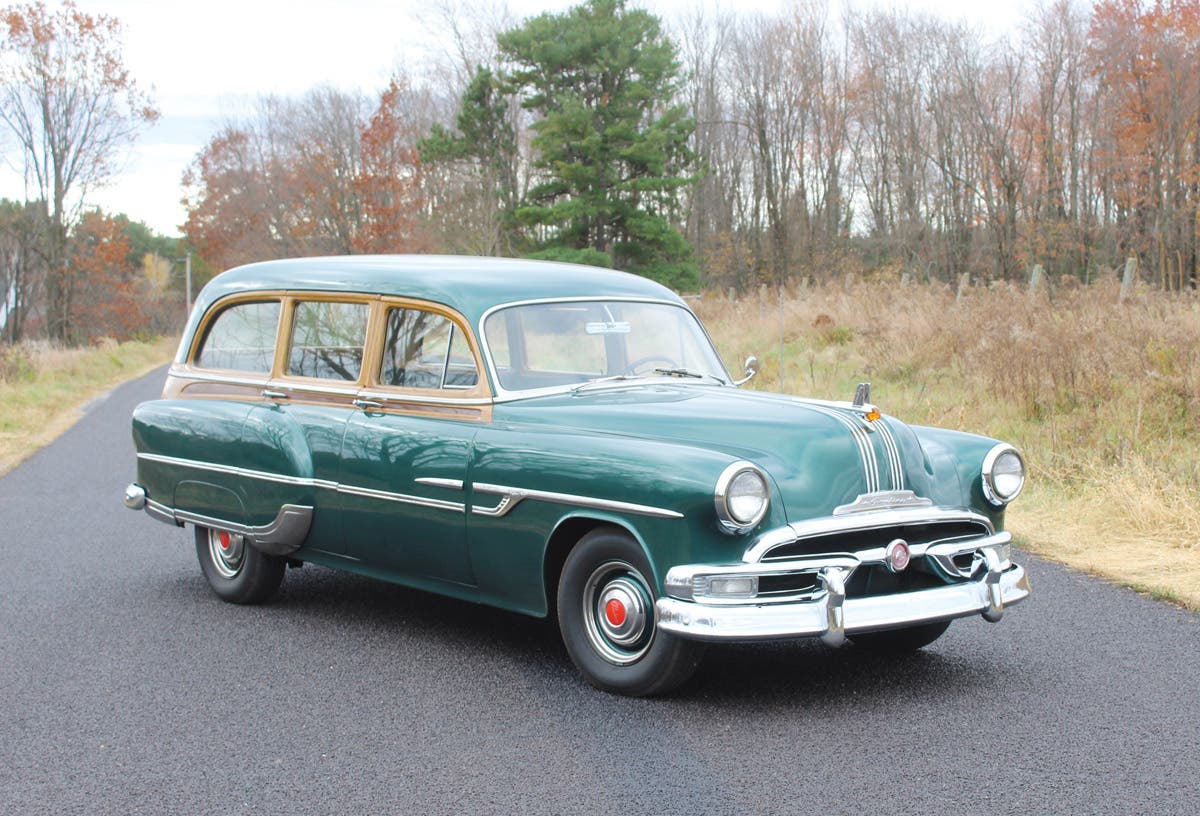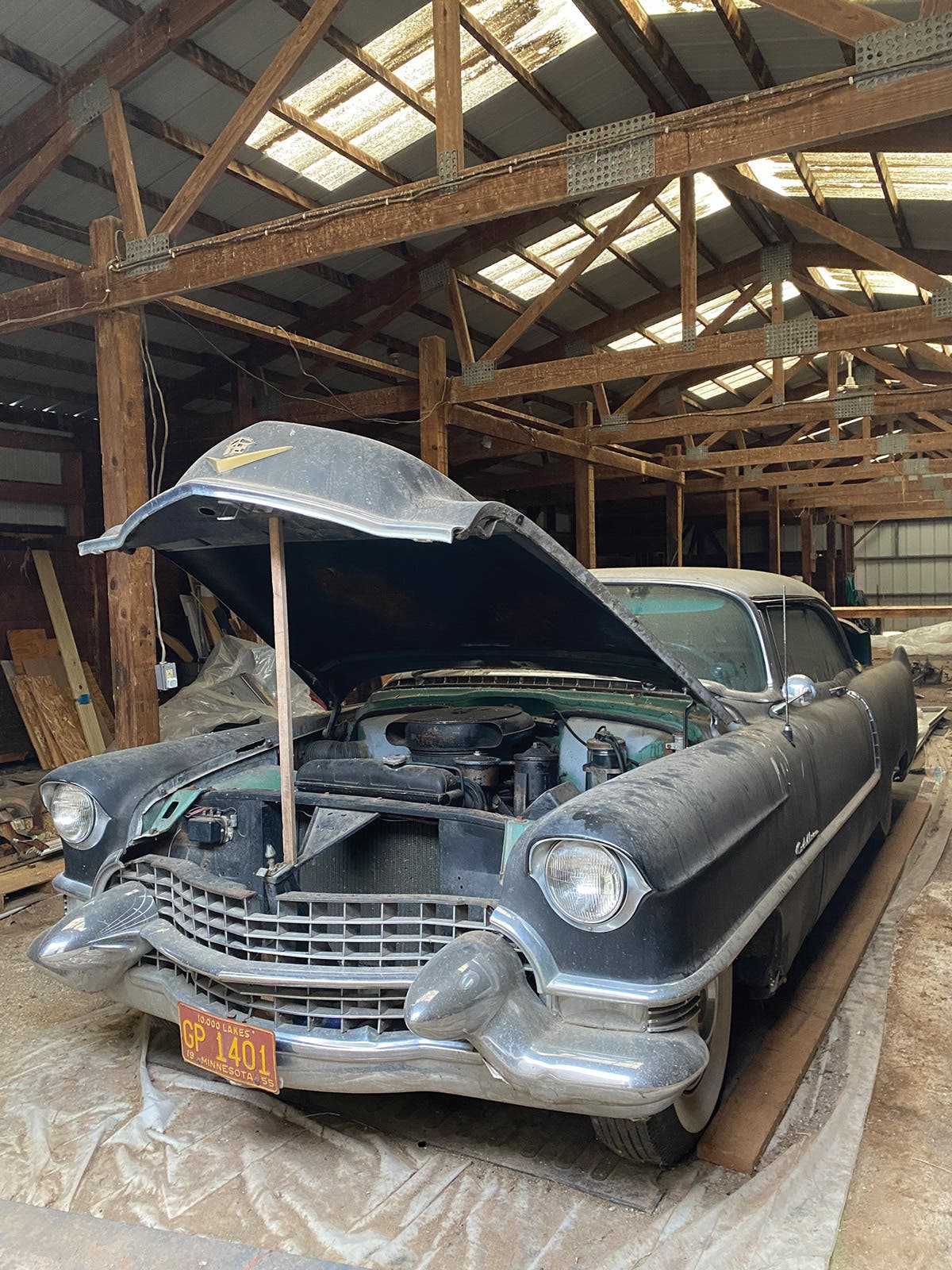How to title your ride when there is no title
By Ken Nimocks Have you ever been discouraged from buying a vehicle because it lacks a title? Or, have you tried to sell a vehicle without a title? This situation…
By Ken Nimocks
Have you ever been discouraged from buying a vehicle because it lacks a title? Or, have you tried to sell a vehicle without a title? This situation is not uncommon, especially for a project or incomplete vehicle. Often, potential buyers decide against buying the vehicle because they have heard stories of how difficult it is to get a legitimate title, or even because of their past experience trying to do so themselves. Some of their car friends might have inaccurate information, or they might be passing on what they have heard — right or wrong — or simply their opinion. The days of trying to “beat the system” by altering or substituting titles or identification numbers are quickly disappearing as electronic communication has made nationwide tracking quick and efficient. However, obtaining a title is no longer impossible, thanks to the efforts of those groups such as the Wisconsin Specialty Vehicle Council, and following the procedures and regulations is the best way to avoid problems later.
The information presented here is based on Wisconsin regulations, so while it might be similar in other states, it can also vary greatly. The Wisconsin Department of Transportation (DOT)/Division of Motor Vehicles (DMV) website at wisconsindot.gov contains a wealth of information and is rather easy to search. Answers to questions on titling for any state should be searched online at that state’s website or addressed by phone or in person with the DMV.
When considering a vehicle purchase, determine if there an Original Equipment Manufacturer (OEM) Vehicle Identification Number (VIN) or serial number on the vehicle. If one exists on the vehicle, a few different situations will apply.
Sometimes, a seller will say that they once had a title, but have since lost it. If they are being truthful, this might be the best and easiest situation to remedy. If the seller is the last titled owner of the vehicle, they can apply for a replacement title. A few details on this process are listed here later. If the titled owner is deceased and the seller is the legal representative, the process might be slightly more involved. It would be well worth it for the buyer to offer to pay the replacement title fee ($20-25 in Wisconsin). The seller would be wise to get a replacement title before trying to sell the vehicle.
Depending on the age of the vehicle and the state’s regulations, the seller might not have a title, but has a bill of sale to prove legitimate ownership. Individual states might accept this for a title replacement application, so it is imperative to check with the motor vehicle department (and, possibly, get answers from more than one person if you’re not confident with the first answer).
If the VIN can be found (ideally by a personal inspection), but the seller cannot produce a legitimate title or bill of sale, you could buy the vehicle and apply for a “bonded” title (details later). The seller must provide the buyer with a bill of sale, proof of his or her identity and their valid driver’s license number. Quite often in Wisconsin, the DMV may check the VIN as to its accuracy and legal status and a state highway patrol officer may complete a physical VIN inspection. It is suggested that, along with absolute proof of identity from the seller, monies paid to the seller be held in legal escrow and there is a mutual signed agreement stating that if the legal status of the vehicle cannot be confirmed by DMV, all monies paid by the buyer to the seller be returned to the buyer immediately.
If there is not a VIN on the vehicle, you could still buy it and, again, the seller must provide a bill of sale, proof of identity and valid driver’s license number. In Wisconsin, the next step is to complete DMV form MV1 and attach a letter with the MV1 requesting a Wisconsin-assigned VIN. The vehicle would be subject to a state patrol inspection for verification and relevant equipment requirements for the model year of the vehicle’s manufacture. If all is approved, a title and Wisconsin-assigned VIN tag are issued with instructions on where and how the tag must be placed.
A Wisconsin law that is not well known but is very important, especially for the seller, became effective Jan. 1, 2016. Known as 342.41 Identity of Buyer, Seller Notification, the law requires a person who sells a motor vehicle to another person, including transferring a junk vehicle by bill of sale, to submit notification to the DMV that a sale has occurred. (Since state sales tax is collected every time a vehicle is purchased, titled and registered, some people did not register the vehicle in their name if they were going to immediately resell it, thus avoiding the tax.) This law does not apply for transfer to or from dealers or other non-individuals, such as companies, charities and government agencies; this requirement is only for sales from one individual to another individual. Within 30 days of a sale the seller needs to report to WisDOT the VIN, identity of the buyer, sale price and date of sale.
If a title is lost, an application for a replacement can be done online, by mail, or in person at any DMV customer service center offering title and registration services. At the center, the application can be immediately processed for an additional $5 fee. Go to the wisconsindot.gov website and search “replacement title” for information. At this site a person can apply online or can print form MV2119, which can be mailed or taken to a service center.
If there is not a proper ownership document (title or possibly bill of sale) or if there is an incomplete chain of ownership, a surety bond will be required in Wisconsin. Search “bonded title” for details, but the basics are these: First, submit form MV2082 Application for a Bonded Certificate of Title to a Vehicle along with form MV1 Wisconsin Title & License Plate Application and listed fees.
Then, vehicle records will be researched to determine previous ownership of the vehicle and price guides will be used to determine the bond amount. Next, WisDOT will send a letter requesting a surety bond for the determined bond amount. Once WisDOT receives the surety bond, a Wisconsin title will be issued that shows the brand BOND POSTED. This brand will remain in Wisconsin records for five years. After five years, WisDOT will send a letter to the current owner(s) letting them know they can obtain a title without the brand and the surety bond will be returned to the surety company.
Before putting hours, dollars and effort into a project only to find out it can’t be properly titled, save the agony and frustration and follow the procedures and regulations from the beginning.
The Wisconsin Specialty Vehicle Council follows legislation related to modified vehicles as well as all other types of special-interest vehicles. They have worked with the Wisconsin DOT and DMV and State Patrol on formulating laws and regulations. The title bond procedure was greatly improved thanks to the efforts of members Tom Zat and Paul Underwood.








